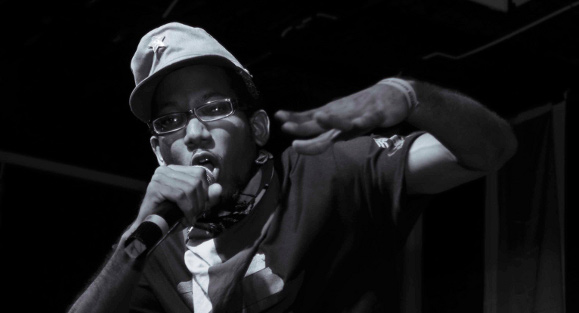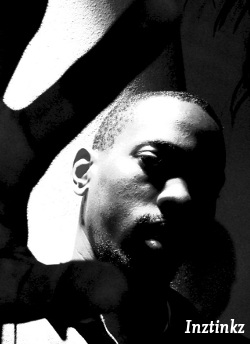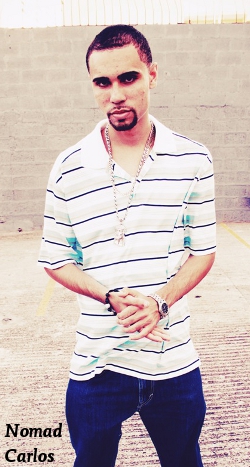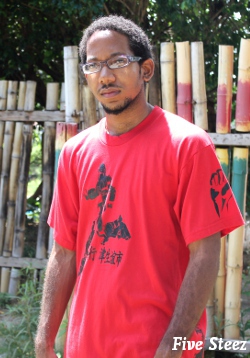Articles about reggae music, reviews, interviews, reports and more...
Jamaican Hip-Hop Grows Despite Local Resistance
- Home
- Articles
- Interviews
- Jamaican Hip-Hop Grows Despite Local Resistance

Jamaican Hip-Hop Grows Despite Local Resistance
"There is this perception that the world only wants reggae and dancehall from Jamaica"
Sampler

Jamaican hip-hop has recently started to get attention with several notable releases. But the scene is still deeply underground and there are strong forces that stand in the way of increasing the presence of hip-hop in Jamaica. United Reggae has talked to three of Jamaican hip-hop’s key figures to shed light on one of the Caribbean’s best kept secrets.
Reggae hails from Jamaica. That’s common knowledge. Hip-hop hails from New York City. That’s also common knowledge. But the thing is that hip-hop actually partly originates from Jamaican deejay culture, i.e. to speak or chat over an instrumental at a sound system dance.
Count Machuki was the one that originated the deejay style, a style later developed and refined by U Roy who scored a number of chart toppers with this new style in the late 60’s and early 70’s. A truckload of Jamaican deejay’s have since followed his footsteps.
Clive Campbell, better known as Kool Herc, was born in Kingston, Jamaica, at a time when the interest for sound systems started to increase, and he grew up at a time when both ska and rocksteady developed on the island.
The break
As a youth he was fascinated by sound systems and he saw and heard them all over Kingston. When he moved to New York City in 1967 he brought with him his Jamaican heritage and in the 70’s he and his sister began to throw parties in their building in the Bronx. Kool Herc was responsible for the music and on his DJ rig, or sound system, and he played funk and soul and used the record to focus only on a short and heavily percussive part of the beat – the magical break.
This was usually the part the crowd and especially the dancers liked the most. So he isolated the break, changed between different breaks and prolonged the effect. Later people started to talk over these breaks and hip-hop – or the blueprint of it – was born.
Today hip-hop has moved from the streets of Bronx to the executive floors on Manhattan. It’s an industry like any other and artists such as Jay Z, 50 Cent, Dr. Dre, Eminem and Kanye West make big bucks on their music, tours and merchandise.
Great powers standing in the way
Hip-hop is just like jazz usually seen as an American invented phenomenon. And it partly is since it’s a melting pot of several different genres. But the greatest influence is the Jamaican deejay and sound system culture. At the same time hip-hop is not too popular in Jamaica, at least not the homegrown kind that has risen out of its shadows in 2012. Jamaican dancehall artists have, however, at least since the early 90’s, glanced at U.S. hip-hop and there have been several collaborations.
 So why has it been rather quite about Jamaican produced hip-hop? The explanation could be real simple – the scene is new and it’s only now artists have begun to surface. But that’s not the case, and according to Inztinkz, a local Jamaican producer and MC who has been making hip-hop for close to two decades, it has to do with fear.
So why has it been rather quite about Jamaican produced hip-hop? The explanation could be real simple – the scene is new and it’s only now artists have begun to surface. But that’s not the case, and according to Inztinkz, a local Jamaican producer and MC who has been making hip-hop for close to two decades, it has to do with fear.
“From my experience one of the biggest obstacles standing in the way of getting the scene known locally is a certain amount of fear from the powers that be and certain power brokers in the local music industry. The fear is that if local hip-hop is embraced with welcoming arms the youth may fall in love with it too much and it may eclipse dancehall locally,” says Inztinkz, and continues:
“Surprisingly though despite their attempts to push our music under the rug there is an increasing number of young people who relate more to hip-hop than dancehall music. Also there is this perception that the world only wants reggae and dancehall from Jamaica which is used to discourage local youths from getting involved with hip-hop.”
Characteristics of the industry
According to Nomad Carlos, a local rapper who has recently put out his debut album, it’s also a question of how the Jamaican music industry is structured after decades of promoting and producing reggae.
 “There isn’t a market for other genres other than reggae and dancehall. So our music will be overlooked because dancehall and reggae is what is hot out here. Some don't even know Jamaican hip-hop exists so we have to do what we can to bring it to the forefront,” explains Nomad Carlos.
“There isn’t a market for other genres other than reggae and dancehall. So our music will be overlooked because dancehall and reggae is what is hot out here. Some don't even know Jamaican hip-hop exists so we have to do what we can to bring it to the forefront,” explains Nomad Carlos.
Blocked out
History is apparently a key issue and if you don’t fit the formula, there’s no room for you and your music. But there’s also a strong attachment and mental ownership of reggae music by Jamaican’s and hip-hop is seen as American and not Jamaican.
“The gatekeepers of Jamaican music have always shunned, ostracized and criticized local hip-hop. Aside from DJ Boyd, who was the only radio jock to support numerous local rappers in the 90's up until sometime in the 2000's, no other DJ has supported local hip-hop,” says Five Steez, another local rapper who has also recently put out his debut album, and continues:
“Some may play one or two songs because of friendship, but they give no widespread support to the community. In addition, local producers have no desire to produce hip-hop music and have in many cases refused to work with rappers. The same goes for show promoters, who see no benefit in booking unknown performers of a genre that people are skeptical about when coming from their own people,” Five Steez explains and concludes:
“Jamaican hip-hop is unknown because the entire industry has deliberately blocked us out.”
It’s about perspectives
Jamaican hip-hop is not really Jamaican in its sound, i.e. the reggae backbeat is not widely used. It lies close to the darker side of the 90’s east coast sound and is characterized by a certain perspective since urban life is largely the same throughout the world whether you live in Paris, Kingston, New Delhi, Los Angeles or Rio de Janeiro. What makes stories about urban life compelling is the perspective of the storyteller.
“Jamaican hip-hop has a unique perspective based primarily on our history and certain inherent traits which Jamaicans possess,” says Inztinkz, and exemplifies:
“Unlike New York in the 90's for example that had a clear ‘sound’ or Compton that gave birth to g-funk, Jamaican hip-hop does not have a characteristic sound, but rather a characteristic perspective and view of the world.”
Five Steez is on the same path as Inztinkz.
“I’d say the main characteristic is the Jamaican reality, mentality and perspective in the music. At times, we may rap in patois or use production that sounds like or samples reggae, but neither of those characteristics are unique to only Jamaican hip-hop as our counterparts in the U.S., UK, Canada and elsewhere have been incorporating those elements into hip-hop.”
Jamaican issues could be local politics, dress codes, bleaching and other things connecting to everyday life.
More focused than ever
Jamaican hip-hop can be traced back to the late 80’s and has gone through its own evolution and the first attempt to unify the scene was made in the 90’s.
“Those of us in the scene in the 90's all knew of and were fans of each other and were all striving for that common goal of getting Jamaican hip-hop heard and respected,” explains Inztinkz, and continues:
“After slight departures from that common goal the scene is now more than ever focused on gaining respect we rightfully deserve.”
 According to Five Steez it’s hard to refer to the ‘Jamaican hip-hop scene’ since there is a lack of opportunities and outlets for the music to be seen and heard.
According to Five Steez it’s hard to refer to the ‘Jamaican hip-hop scene’ since there is a lack of opportunities and outlets for the music to be seen and heard.
“But there is definitely a sizable loosely-knit community of diverse talents. Right now, some of us are trying to create more platforms and opportunities for ourselves as well as the wider community but we have yet to organize a truly united movement or gather the attention and respect of the masses,” says Five Steez.
No interplay
Even though reggae and dancehall produced in Jamaica is sometimes heavily influenced by hip-hop the local scenes rarely collaborate or interplay. There have been collaborations between local reggae and hip-hop artists, and a few artists, such as Kabaka Pyramid, have emerged with a fusion of the genres, thus created a unique sound.
“There are a few hip-hop artists, such as myself, that have performed at events in the reggae scene. Most of my performances at such events, however, have been at Manifesto|Jamaica events and I’m not completely accepted in the scene by many reggae promoters, musicians and artists, although I have always gotten a positive response from the audiences,” explains Five Steez, and continues:
“Kabaka Pyramid, on the other hand, has been able to penetrate the reggae scene fairly well enough to generate a local buzz. That massive support only came after he decided to fuse his multiple influences and release his EP, which could easily be accepted by the reggae audience. Aside from us and a few others, no other rappers really attempt to even perform in that scene. And generally, hip- hop is just not embraced in the reggae scene as much as the hip-hop scene is willing to embrace reggae.”
Antagonistic relationship
According to Inztinkz there is even less interplay with the dancehall scene, and just like reggae there have been a few collaborations with artists that have a style reminiscent of rappers.
“For the most part however the dancehall scene has maintained an antagonistic relationship with the local hip-hop scene. We've been called everything from traitors to sell-outs and threats have been made by dancehall producers to physically harm Jamaican rappers. DJ’s have thrown away our music and most radio stations have refused categorically to play local hip-hop, with the exception of a few artists,” says Inztinkz, and continues:
“Ironically this antagonistic is completely one-sided. We are fans of many dancehall artists and are far more willing to embrace dancehall than they are willing to embrace local hip-hop. When some dancehall artists decide to fuse with hip-hop to make their music more accessible they tend to look outside of Jamaica, even though the talent exists locally and is more accessible to them.”
Optimistic about the future
The local Jamaican hip-hop scene has existed for more than two decades, but has not yet managed to reach a wide audience in neither Jamaica nor other parts of the world. But thanks to new marketing tools such as social media things might change in coming years and Nomad Carlos, Inztinkz and Five Steez have managed to get the word out on their albums.
The trio has high hopes for the future and believes Jamaican hip-hop will be recognized by the global hip-hop community in the near future.
“Our MC's will be given the respect they deserve and our producers will be sought after. Ironically, when this happens and Jamaican hip-hop gains legitimacy worldwide, particularly in the U.S., that is when many locally who have hit out against what we are doing will want to jump on the band wagon,” says Inztinkz.
Maybe Kingston will be the next Los Angeles, New York City, Atlanta or Houston in a few years. There certainly are talented producers and MC’s coming from Jamaica and according to Five Steez, Inztinkz and Nomad Carlos you should keep an eye out for several artists – Dahj aka Sincere Seaga, Dizzy the ill one, TSD The Sickest Drama, Kabaka Pyramid, Deewun, Gamblino Money Gang, Sons of Liberty, and Fo5ith.
Remember where you read it first.
Read more about this topic
Read comments (3)
| Posted by FIyahman on 02.05.2013 | |
| The Five Steez dude raps with a fake American accent? LOL Why would you want to beg Hip Hop when you have such a vibrant and recognised scene in your own back yard?! Having said that the Kabaka Pyramid tune I just checked is Fiyah! If you are going to do Hip Hop at least fuse reggae and danehall influences and dont use no beg yankee accent. |
|
| Posted by Five Steez on 04.16.2013 | |
| Bless up Rude Bwoy! You understand what we're about! | |
| Posted by Selector D on 07.03.2013 | |
| Five Steez rapping with 'fake' accent >>> Snoop Lion chatting patois...music in 2013 has no boundaries and few rules - time to judge music on merits, not on place of origin. Big up all First Coast Crew! | |
Comments actually desactivated due to too much spams
Browse by categories
Recommended Articles
Latest articles
Recently addedView all
© 2007-2026 United Reggae. All Rights Reserved. Reproduction in whole or in part is prohibited. Read about copyright
Terms of use | About us | Contact us | Authors | Newsletter | A-Z














